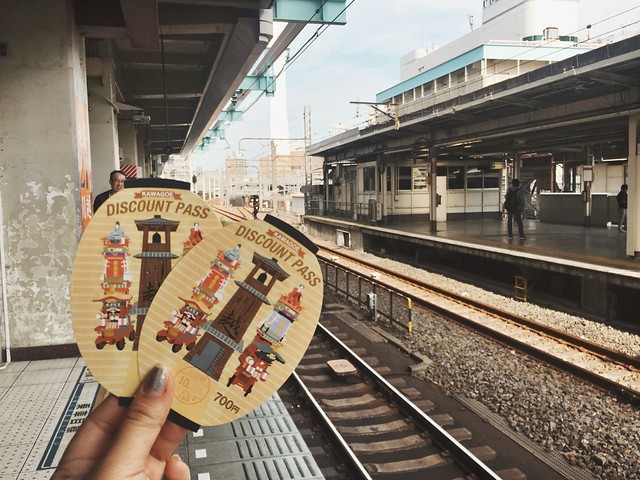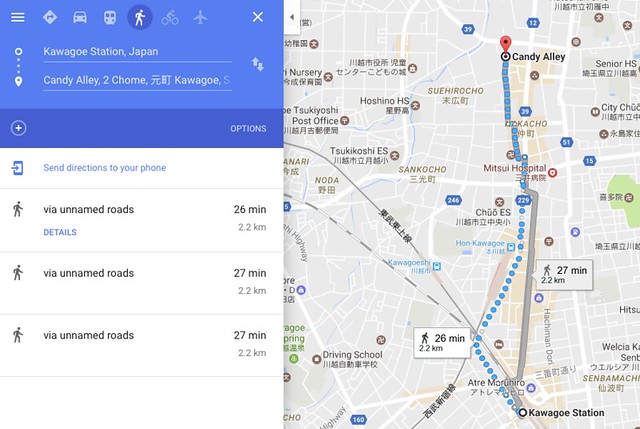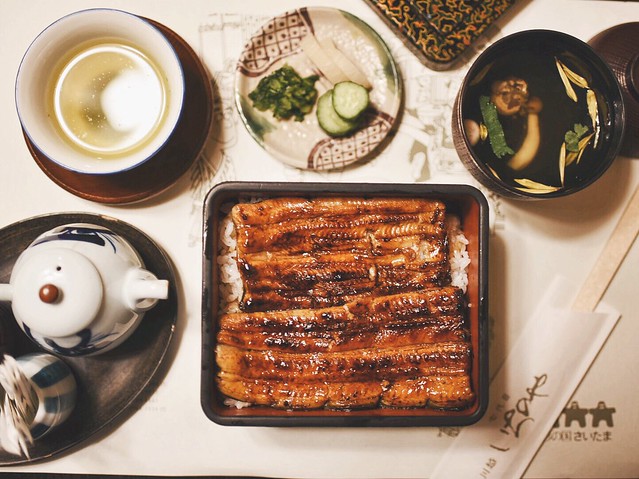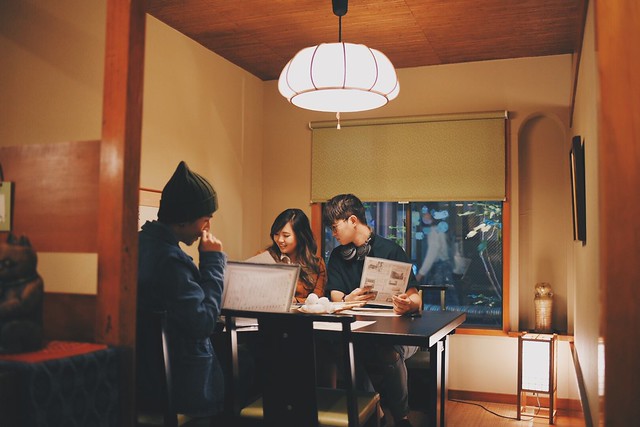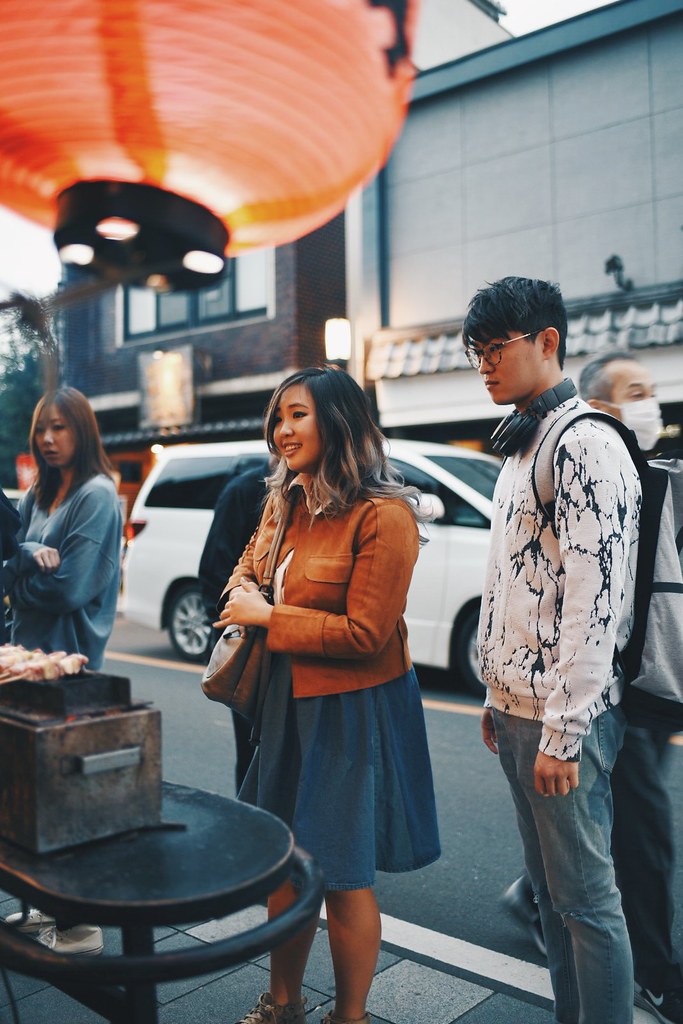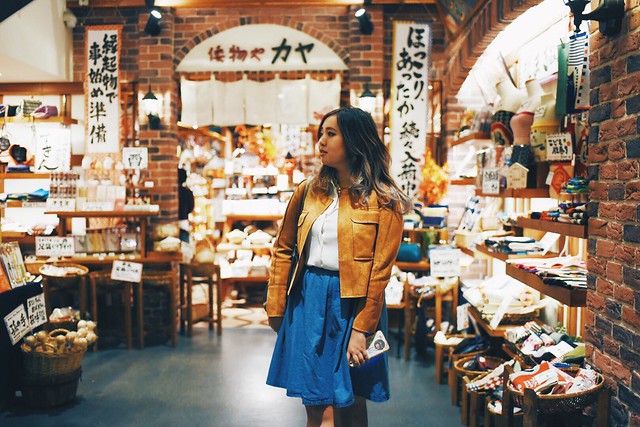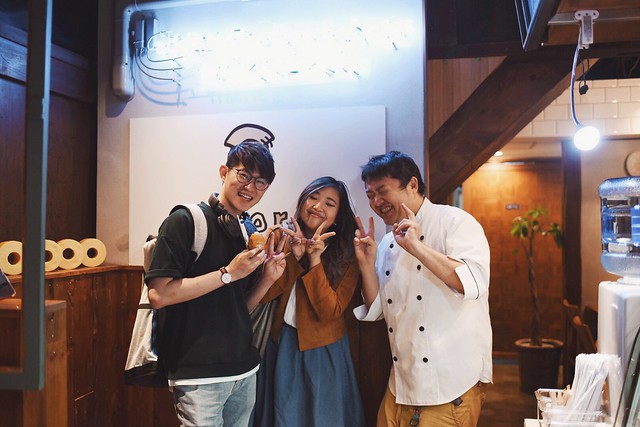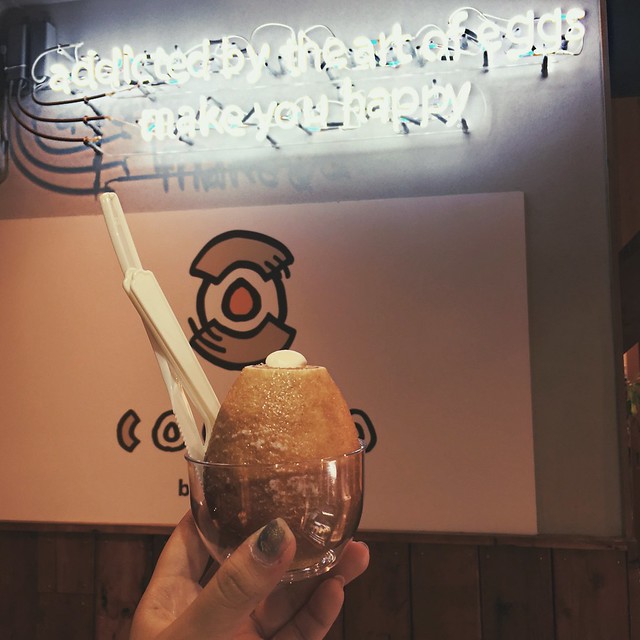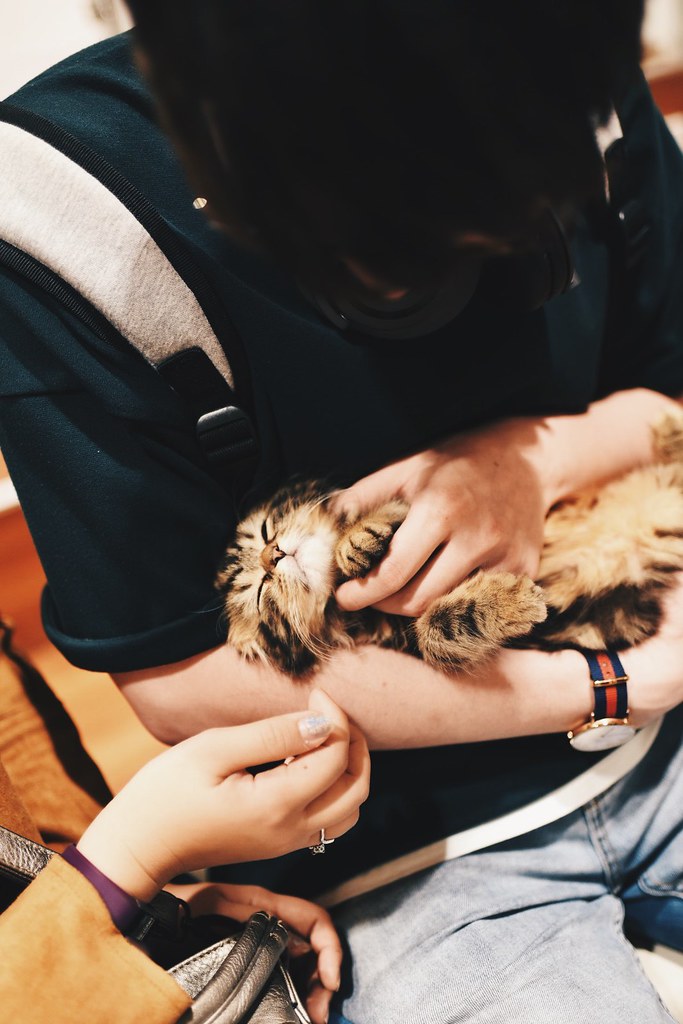The correct answer, of course, is what your wallet allows for. So technically, yes, it is possible, but it’s mad expensive and frankly, a day trip most people aint willing to pay for. The bullet train alone is over a hundred dollars! In general, it only makes sense to head to that side of Japan if you’ve got a longer trip and can afford to spend a good couple of days in that city – check out Tokyo Cheapo, which did a pretty straightforward breakdown of easy ways to get from Tokyo to Kyoto here.
But what if your week long holiday is based purely in Tokyo and you can only afford to take a day trip out?
Most people don’t realise that there are a ton of day-trip options out from Tokyo that are really accessible and feasible, as long as you put in your research hours prior to the trip. For those who want to see Kyoto but can’t afford the time to travel so far out, the perfect day trip you’re looking at lies half an hour out of the city center, in a little town called Kawagoe.
Why Kawagoe?
The appeal of Kawagoe resonates strongly with that of Gion, Kyoto. Often referred to as Little Edo, it’s one of the small towns in the Saitama prefecture that survived the World War Two bombings, and so retains the old school Japanese charm of what Tokyo might have looked like, once upon a time. The architecture and atmosphere of the city center is so similar to what I remember of Kyoto from my trip there two years ago, and it’s location is much more accessible from Tokyo for a better price!
Getting to Kawagoe
This is what the very cute discount pass looks like. You have to go to the train office and ask for it, you can’t get it from the machines. Which means that you don’t tap to go in either, you just flash it to the station guard and he lets you pass through this aircon room into the station! Ha.
This is actually a really good price because it’s essentially 8SGD for a round ticket, whereas going there on a normal ticket is at least 470yen one way! As with most of Japan, different line operators will service the tokyo-kawagoe route for different prices, but this is the most economical. WITH ONE EXCEPTION. If you’re on the Japan rail pass, you can take a 55min train from Shinjuku station to Kawagoe station via the JR Saikyo/Kawagoe Line and it’ll be covered. But the Japan rail pass is pretty pricey too, so you wouldn’t get it unless you were already going to travel long distances within Japan. So for most people, the Kawagoe Discount Pass makes the most sense.
Please note – the discount pass is only valid for ONE DAY, so don’t expect your return pass to work if you’re planning to stay a night there!
Kawagoe: getting around
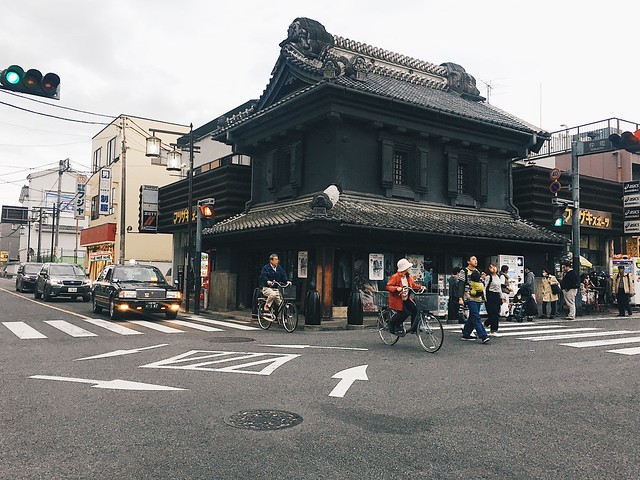
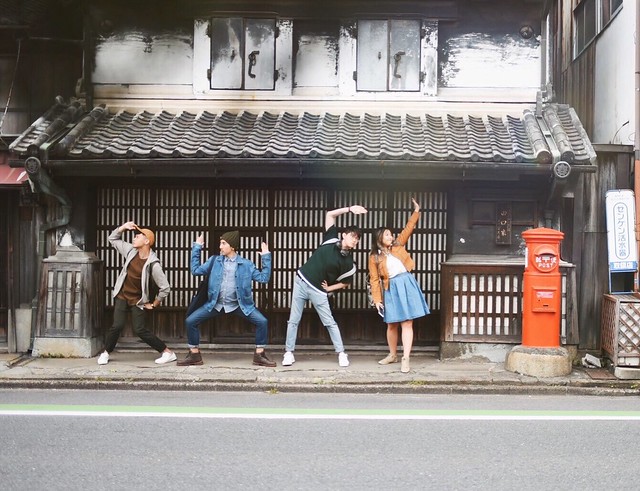
Your main mode of transport in Kawagoe are your legs. The city is very, very walkable, to the point where bikes and cars don’t really make sense if you’d like to get a good sense of the city, in my opinion. Kawagoe’s train station is a fair distance from the heart of the traditional little town, about a thirty minute leisurely walk. Because it’s easier to visualise, here’s a screenshot of the map for Kawagoe:
As you can see, it’s a fairly straightforward walk. That really long bit in the middle that’s just one straight road, is a city bit which is essentially one long road of modern-ish shops with lots of things to see. You can also skip the walking by taking a ten minute taxi ride or a twenty minute bus ride, but I’d suggest walking instead because then you can really see what the city is like. Remember to time yourself – shops close early, and so you want to reach the old town just before dusk since it gets really beautiful once the lights dim and street lights turn on.
*I mapped to Candy Alley because that’s the most iconic street in the old town and the easiest to remember if you’re trying to navigate your way around, but the city does start melting into traditional architecture before that.
*Just another note: Almost no one in Kawagoe speaks English. So you’re better off mapping your way before heading there, instead of trying to ask for directions when you reach.
Kawagoe: All Eel Need Is Love
As the story goes, other forms of meat like pork were forbidden back in ~the day~, and so the locals ate lots and lots of eel. Up till this day, Unagi remains their main specialty, and most restaurants have their own special way of seasoning the eel that’s been passed down through the generations!
Unagi as it is is an expensive dish, so this is going to be an expensive meal relative to the five dollar ramen bowls you’d have been eating throughout Japan. But by expensive, I mean.. thirty, forty bucks? Which, if you think about it, is not bad at all for a good meal, and way cheaper than what the Singaporean equivalent of a good meal would cost. So it’s all about the value, you guys!
The best restaurant in Kawagoe for eel is Uchinoya, and following the when are you ever coming back to kawagoe again..?? logic, to Uchinoya we went. The wait time was about an hour, so we took the hour to wander around the Warehouse district while waiting our turn. I’m not sure if you can do a phone booking, but as we had no japanese-speakers in our group, we were content to just wait it out. Later, I googled it and it seems you can make a booking on this site in English!
The restaurant itself is gorgeously set up, with tatami/tabled private rooms, and everything is in Japanese. Ha! Thankfully, the more popular items are also available on a simplified English menu, so ask for that. The place also accepts major cards, so don’t worry if you haven’t brought enough cash. Easily one of the most satisfying meals in Japan, and even more so if you’re originally an unagi fan!
Kawagoe: Candy Alley and More
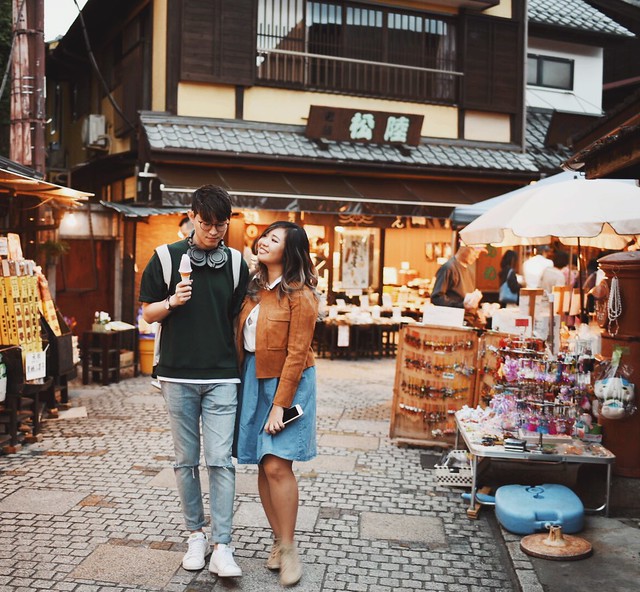
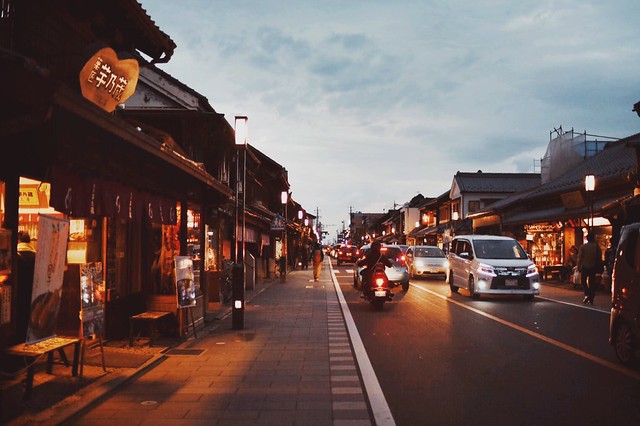
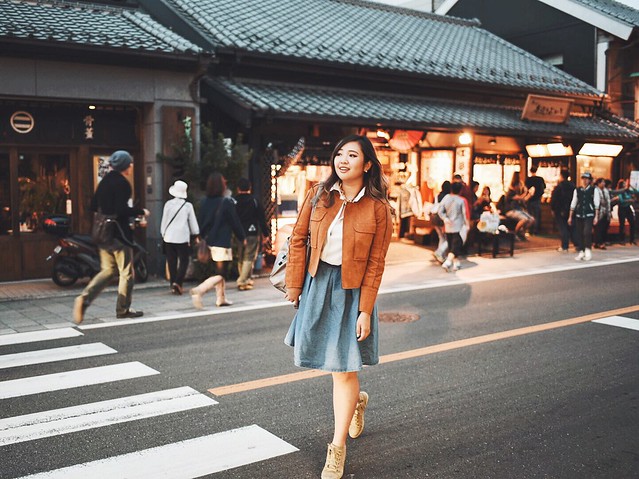
The best time to be here, as mentioned before, is sunset. In the day it’s pretty, but at dusk it’s spectacular. We were there in October, when the air gets chilly with the turn of the day, and so the compounded effect of the bustle, lights, and chill was amazing.
Each shop seems individually dedicated to being the most accurate representation of olden day Tokyo it can be. While there isn’t one particular thing that you’d be flocking to see, in Kawagoe, the devil really is in the details. Take your time to look at every single thing and don’t just stride past the little shops – we saw a mini outdoor onsen at the back of a craft store, where you could have a beer/coffee and soak your feet in steaming spring water, and stumbled upon a mega traditional and gorgeous dining area by a private bamboo grove behind a door in a random bar! And although not many people speak English there, everyone is mega friendly. You get the feeling they’re used to tourists reacting to their little town in wonder, and that can only be a good thing.. or so we hope.
Just note: Kawagoe, though not exactly a tourist town, isn’t a hidden gem either. And so souvenir or handcrafted items tend to be slightly pricey in my opinion. Though if you stick to just snacking and walking around, you’ll find that you shouldn’t burst your budget.
Kawagoe: Heading Back
One tip I have for heading back – keep your google maps of Kawagoe saved. Because we wandered around so much without keeping track of where we were, the roads back looked pretty unfamiliar by the time everywhere started closing and turning out the lights. So that’s just something to take note of. And when you reach the train station again, there’s a little bread shop right outside the gate that serves the most amazing pastries. So grab one for your return journey, or to keep for breakfast the next day!
If you’re going with family, I should think it’s the kind of place your parents would enjoy seeing because it contrasts so nicely with the cosmopolitan Tokyo. However, take note of all the walking that has to be done – if there are older folk in your group, you might want to consider checking out the local bus routes, or just take a cab to the main area instead of walking.
But either way, it’s definitely worth a visit. And don’t forget – if you haven’t already started planning your trip to Tokyo, Skyscanner is the best way of searching for and comparing fares across all airlines! It’s what I use for every trip I plan, whether on web or mobile, so definitely start incorporating it into your travel planning arsenal 🙂
x
Jem



